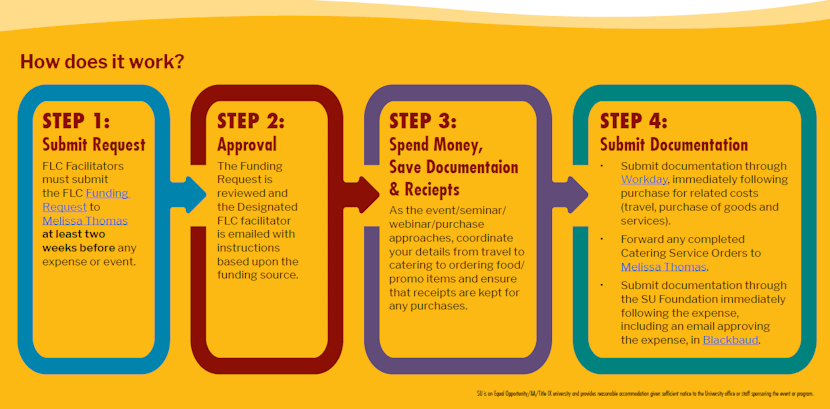Faculty Learning Communities
Overview
The work of Alexander Meiklejohn and John Dewey in the 1920s and '30s gave rise to the concept of a learning community. Increasing specialization and fragmentation in higher education caused Meiklejohn to call for a community of study and a unity and coherence of curriculum across disciplines. Dewey advocated learning that was active, student centered, and involved shared inquiry. A combination of these approaches in the late 1970s and '80s produced a pedagogy and structure that has led, among other things, to students' increased civic contributions, retention, and intellectual development. The term learning communities traditionally has been applied to programs that involve first- and second-year undergraduates, along with faculty who design the curriculum and teach the courses.
What is an FLC?
A faculty learning community (FLC) is a cross-disciplinary faculty and staff group of 8 to 12 members engaging in an active, collaborative, yearlong program with a curriculum about enhancing teaching and learning and with frequent seminars and activities that provide learning, development, interdisciplinary, the scholarship of teaching and learning, and community building. In the literature about student learning communities, the word student usually can be replaced by faculty and still make the same point.
Cohort-based Learning Community
Cohort-based learning communities address the teaching, learning, and developmental needs of an important cohort of faculty that has been particularly affected by the isolation, fragmentation, or chilly climate in the academy. The curriculum of such a yearlong community is shaped by the participants to include a broad range of teaching and learning areas and topics of interest to them. These communities will make a positive impact on the culture of the institution over the years if given multi-year support. Examples of cohort-based communities at ¾ÅÐãÖ±²¥ include the Scholarship of Teaching and Learning community, the Pedagogy and Civic Reflection community and the previous SETT: Social Justice, Equity and Teaching Transformation community.
Topic-based Learning Community
Each topic-based learning community is yearlong and has a curriculum designed to address a special campus teaching and learning issue, for example, diversity, technology, or cooperative learning. These communities offer membership to and provide opportunities for learning across all faculty ranks and cohorts, but with a focus on a particular theme. A topic-focused faculty learning community ends when the teaching opportunity or issue of concern has been satisfactorily addressed. Examples of topic-based communities at ¾ÅÐãÖ±²¥ include the Enhancing Courses with Emerging 3D Technologies community, the Writing community and the Zoo House Rock community.
FLC Funding

FLC Funding Process
Where can I find information and forms to participate?
Click the links below to complete:
